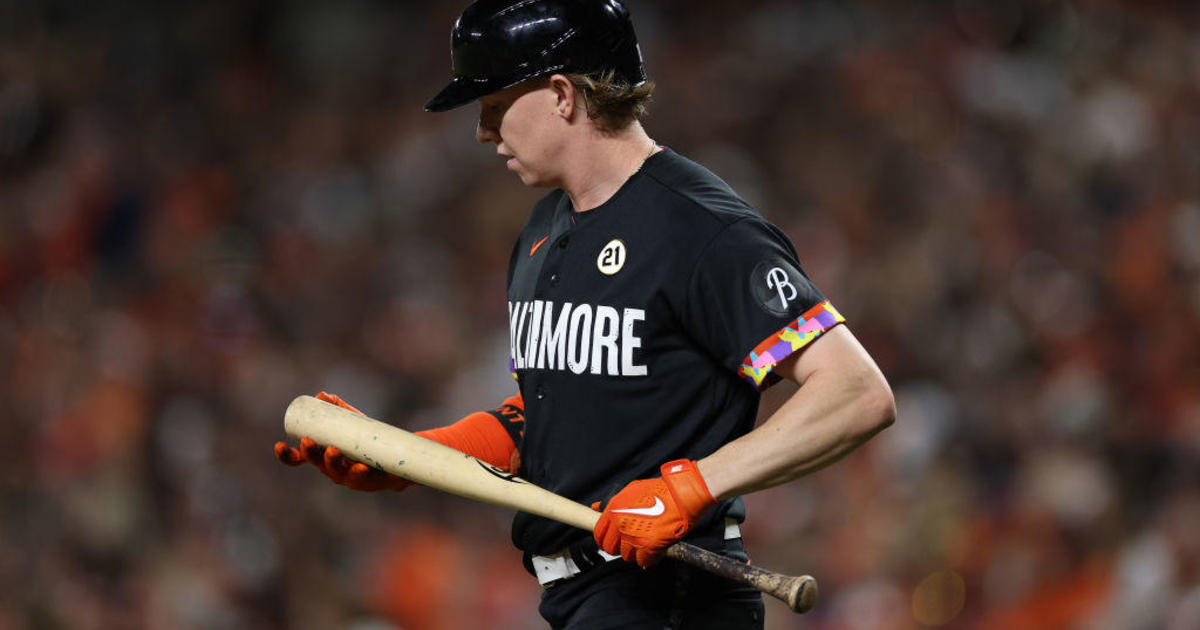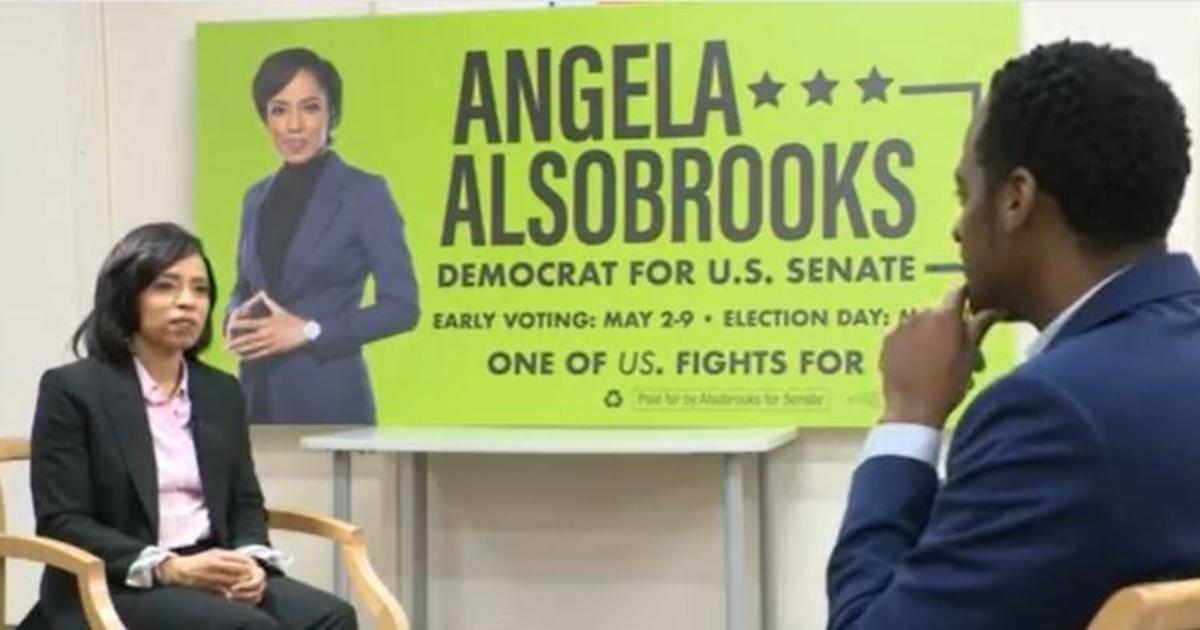At 10, Boy Dancing His Way To Guinness World
HERNDON, Va. (AP) -- Let other parents stick honor-student bumper stickers on their cars. Ted Wada has a framed certificate from Guinness World Records on his mantel to celebrate his 10-year-old's excellence in . . . video gaming.
"It is a great honor for him," said the proud father.
One recent afternoon, Ryota Wada was at home in Herndon, standing, in the shadow of the certificate, on a plastic pad connected to a Sony PlayStation console. Beads of sweat streamed down the fourth-grader's flush cheeks as he paused between rounds of Dance Dance Revolution, the game for which he quick-stepped into the record books.
"I am pretty good at this," he said modestly.
Millions of people have watched one of the boy's videos, which are collected on Ted Wada's YouTube channel and feature Ryota conquering the popular video game, in which a player selects a song, then touches four colored arrows on a plastic pad in a set sequence based on the music's rhythm.
The boy's viral video, "Ryota's Move," was shot in California when he was 5, and his little legs pumped almost spasmodically. The video turned Ryota, who attends Fox Mill Elementary School, into a minor Internet sensation before he entered first grade.
Last year, at the behest of a Guinness World Records editor who was wowed by his moves online, Ryota attempted to log a perfect score dancing to a particular song, "Heavy Eurobeat," on a particular setting - expert. With his father holding down the pad, which has a tendency to slip, Ryota nailed all 223 steps and 16 combinations. He was 9 years old.
His feat - and feet - made the "Guinness Book of World Records 2011 Gamer's Edition," which lists Ryota as "Youngest Gamer to Achieve a Perfect Score on Dance Dance Revolution."
"It made me feel pretty good," he said of his record-making moves. He shrugged, then resumed dance-dancing away on the pad, the familiar word "PERFECT!!" flashing repeatedly on a 50-inch TV screen as his father and mother, Yumi, watched with pride.
Ryota's younger brother, Yuma, and a friend from across the street pretended not to be impressed.
Kids can be recognized for all kinds of exceptional behavior, such as landing on the honor roll or winning science-fair prizes or soccer games. Ryota happens to be great at jumping around on a video-game controller, for reasons he can't quite articulate because, well, he's 10 and would rather reread "Diary of a Wimpy Kid" than reflect on his own motivations.
"Other kids say DDR is an adult game and it's very hard," he said. "I can do it very well. Why, I don't know. I think maybe because I can catch rhythm easily."
Whatever the reason, he has spent significant time sharpening his skills, dancing away hundreds, if not thousands, of hours. He's done so with his parents' blessings, often playing the game with his father, who took up DDR to lose weight after moving from Japan to the United States for a job and finding himself eating too much McDonald's.
"It's good for fitness," Ted Wada said of a game that's been used as a weapon in the U.S. war on childhood obesity, with schools in several states adding it to their physical education curriculum.
"I played for diet, and Ryota was so curious about why I enjoyed so much playing the game. He started to play when he was 3, and he wasn't any good. But I can't compete with him now. It brings him so much extra enjoyment. And it can help his development."
There's no consensus on the value of video games in child development. Dance Dance Revolution, first released in 1998, and Ryota's other favorite - Rock Band, on which he plays pretend drums - might fare well compared with the passive medium of television.
Proponents of the games argue that they foster hand-eye (or foot-eye) coordination. But some studies suggest video games don't stimulate sufficient activity in critical parts of the brain, without which behavioral problems can crop up later.
That's to say nothing of the effects of video game violence, although stepping on a plastic controller to a high-velocity techno song is not especially aggressive.
Victor "Lil Poison" De Leon III set a Guinness record several years ago by becoming the world's youngest professional gamer, inking a deal at age 6 to be paid to play the popular first-person "shooter" game Halo.
"Just pressing buttons and killing bodies may not be good for kids," said Ted Wada, who was a video game programmer in Japan, working for Konami, the company that created Dance Dance Revolution. (Wada is now a technology executive for the U.S. subsidiary of Noritsu, a Japanese manufacturer of photo-processing machines.)
There's also an opportunity cost to all those hours Ryota spent playing the game he learned at his father's feet (until he became much better than his father). Those are hours Ryota didn't spend reading or playing outside or interacting with other children. Not for nothing is his favorite shirt the one that says "INDOOR PERSON," with a picture of the "Wimpy Kid" cartoon character sitting on the floor, playing a video game, alone.
"The surprise was that Ryota was playing that game so much - maybe four or five hours if I didn't stop him," Wada said. "He can focus so much on it. He really enjoys it."
That's important, said Patricia Greenfield, a psychologist and director of the Children's Digital Media Center at UCLA. "The fact that he likes doing it and is getting a sense of his own competence - and is even better than his dad - sounds really great," she said. "He started doing this because his father was doing it; it's bringing parental modeling into the electronic age. . . . You want to make sure children have a balanced life, but three hours of exercise sounds like a good thing to me."
In many ways, Ryota appears to be your average 10-year-old boy.
He wants to be in a rock band, he stuffs his face with microwave popcorn and harasses his little brother, and he is obsessed with robots. He used to talk like a robot with his friends, and now he writes about them, in both English and Japanese. (The family moved back to Japan in 2008, then came to Herndon last fall when Wada was transferred again.)
"I like writing stories," Ryota said. He grabbed his notebook, sat on the floor and read "Robots That Lost Their Batteries" aloud to his visitors.
Not long ago, Ryota brought a copy of the Guinness book to school, opened it to page 94 and asked his teacher, Ann Hershey, if he could share it with the 26 other fourth-graders.
"He was very cute about the whole thing," Hershey said. "I glanced down and said, 'Gee, that picture looks a lot like you.
Gosh, that is you!' He shared it with the class, and they were just wowed away. They wanted his autograph. They were just so impressed."
"I was feeling pretty special," Ryota admitted. "Everybody was clapping and cheering. I was in a pretty good mood."
Hershey calls Ryota "a very well-rounded little boy - a very good writer in English and a high achiever in math. He's a delight to get to know, but he seems so low-key. You wouldn't think that dance maneuvers would be the thing he'd be known for. Maybe building a robot. But there are sides of him we haven't seen yet. He hasn't shown us his moves yet."
Back at home, Ryota plays one more round of DDR, dance-dancing to a remake of "La Bamba," landing his feet exactly where they are supposed to be, and when, time and time again.
(Copyright 2011 by The Associated Press. All Rights Reserved.)



